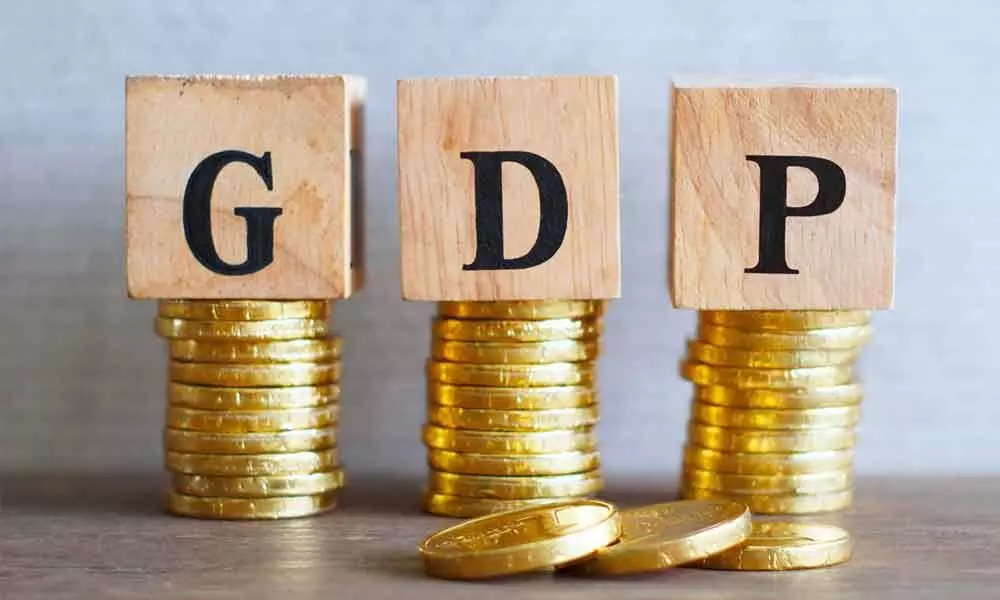ADB sees India's GDP growth at 7.75% in FY23

India may grow at 8% in FY24; However ADB flags inflation as a major issue mainly on account of a rise in prices of commodities in wake of ongoing Russia-Ukraine war
New Delhi: India is likely to maintain its position as the fastest-growing major economy with the ADB outlook projecting a growth rate of 7.5 per cent for 2022-23 on strong investment prospects against five per cent for China in January-December 2022. The Asian Development Bank (ADB) Outlook 2022 said that India's growth in the next fiscal year 2023-24 will accelerate further to 8 per cent, though China will witness a deceleration in growth to 4.8 per cent in 2023.
The ADB, however, flagged inflation as a major issue mainly on account of a rise in prices of commodities in wake of the ongoing Russia Ukraine war. In its India Chapter, ADB said: "GDP is forecast to grow by 7.5 per cent in FY2022 (fiscal to be ending in March 2023) and 8 per cent in FY2023 (to be ending in March 2024), driven by strong investment growth, with public investment helping crowd-in private investment. FY2022 refers to the 12 months ending 31 March 2023, ADB said about the India chapter. The Indian economy expanded by 8.9 per cent in the fiscal ended March 2021. China posted a growth rate of 8.1 per cent in 2021. "Economies in developing Asia are starting to find their footing as they slowly emerge from the worst of the Covid-19 pandemic," ADB Chief Economist Albert Park said. "However, geopolitical uncertainty and new Covid-19 outbreaks and virus variants could derail this momentum. Governments in the region will need to remain vigilant and prepared to take steps to counter these risks. That includes making sure as many people as possible are fully vaccinated against Covid-19. Monetary authorities should also continue to monitor their inflation situation closely and not fall behind the curve," Park said.
In the report, the Manila-based multilateral funding agency said the growth in South Asia is projected to slow to 7 per cent in 2022, before picking up to 7.4 per cent in 2023. The subregion's growth dynamics are largely driven by India and Pakistan, it added. Pakistan's growth is forecast to moderate to 4 per cent in 2022 on weaker domestic demand from monetary tightening and fiscal consolidation before picking up to 4.5 per cent in 2023, it said. Developing Asia's economies are predicted to grow by 5.2 per cent this year and 5.3 per cent in 2023, thanks to a robust recovery in domestic demand and continued expansion in exports, ADB said. Developing Asia comprises 46 member countries of ADB by geographic group: the Caucasus and Central Asia, East Asia, South Asia, Southeast Asia and the Pacific. ADB said the Russian invasion of Ukraine poses the most severe risk to developing Asia's economic outlook. However, uncertainties stemming from the Russian invasion of Ukraine, the continuing coronavirus disease (Covid-19) pandemic, and monetary tightening by the US Federal Reserve pose risks to the outlook. "The war is already affecting economies in the region through sharp increases in prices for commodities such as oil, and has heightened instability in global financial markets. Covid-19 continues to impact many parts of developing Asia, with some economies experiencing new surges in cases," according to ADO 2022.
For India, it said the growth outlook assumes sustained progress in coronavirus disease (Covid-19) vaccinations and that any new variants of the virus are of limited severity. It also factors in the impacts of Russia's invasion of Ukraine—primarily higher global oil and commodity prices that will contribute to rising inflation and a widening of the current account deficit, it added. "India is on the path to a sustained economic recovery, thanks to the vigorous countrywide drive to deliver safe and wide-reaching Covid-19 vaccinations, which helped reduce the severity of the third pandemic wave with minimal disruptions to mobility and economic activity," said ADB Country Director for India Takeo Konishi.








